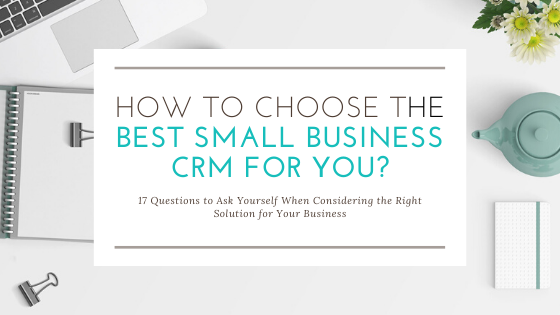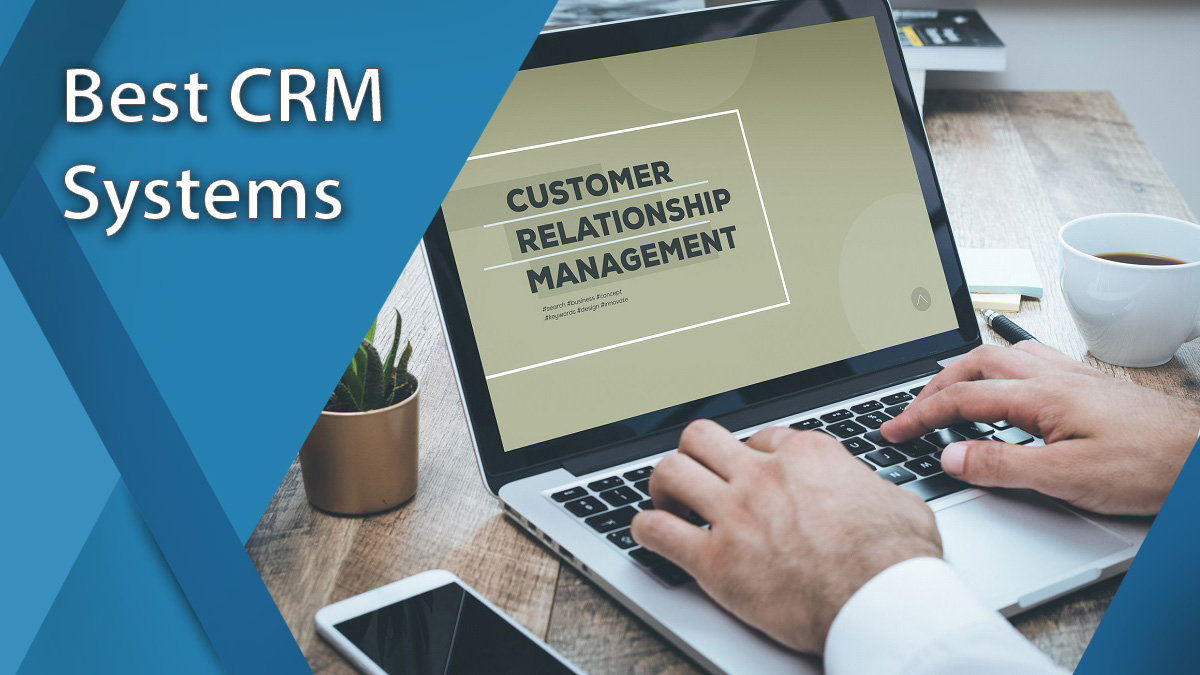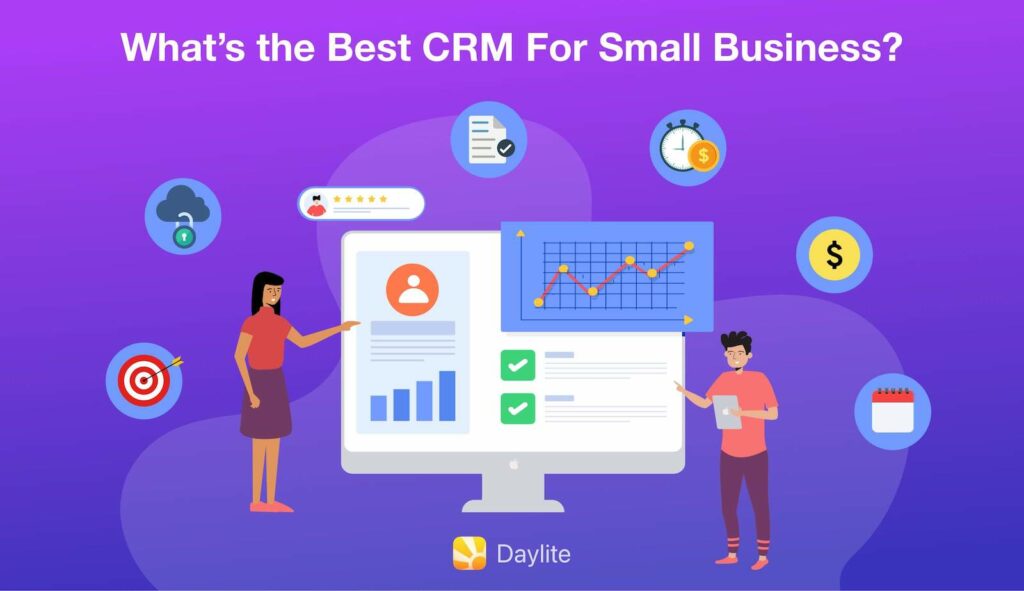Navigating the CRM Maze: Essential Selection Tips for Small Businesses

Navigating the CRM Maze: Essential Selection Tips for Small Businesses
Choosing the right Customer Relationship Management (CRM) system can feel like stepping into a labyrinth, especially for small businesses. With a plethora of options, each boasting a unique set of features, it’s easy to get lost. But fear not! This comprehensive guide is designed to illuminate your path, providing you with essential selection tips to find the perfect CRM solution that fits your specific needs and propels your business toward success.
Why a CRM System is Crucial for Small Businesses
Before diving into the selection process, let’s establish why a CRM is so vital for small businesses. In a nutshell, a CRM system acts as the central nervous system of your customer interactions. It helps you:
- Organize Customer Data: Say goodbye to scattered spreadsheets and siloed information. A CRM centralizes all customer data, including contact details, purchase history, communication logs, and more.
- Improve Customer Relationships: By providing a 360-degree view of each customer, a CRM empowers you to personalize interactions, anticipate needs, and build stronger relationships.
- Boost Sales and Revenue: With a CRM, you can streamline your sales processes, track leads, and identify opportunities for upselling and cross-selling.
- Enhance Marketing Efforts: CRM systems enable targeted marketing campaigns, segmentation of your audience, and tracking of campaign performance.
- Increase Efficiency and Productivity: Automate repetitive tasks, reduce manual data entry, and free up your team to focus on more strategic initiatives.
In essence, a CRM system is an investment that can significantly improve your customer satisfaction, streamline your operations, and ultimately, drive business growth.
Defining Your Needs: The Foundation of a Successful CRM Selection
Before you even begin researching CRM systems, you must define your business needs. This is the most critical step, as it will guide your entire selection process. Ask yourself the following questions:
1. What are your business goals?
What are you hoping to achieve with a CRM? Are you primarily focused on increasing sales, improving customer service, streamlining marketing efforts, or a combination of these? Your goals will dictate the features and functionalities you need.
2. Who are your target users?
Identify the specific departments and roles that will be using the CRM. This includes sales representatives, marketing specialists, customer service agents, and management. Understanding their needs will help you prioritize features that are essential for their daily tasks.
3. What are your current pain points?
What challenges are you currently facing in managing customer relationships? Are you struggling with disorganized data, inefficient sales processes, or poor customer communication? Identifying these pain points will highlight the areas where a CRM can provide the most value.
4. What are your must-have features?
Based on your goals, target users, and pain points, create a list of must-have features. These might include contact management, lead tracking, sales pipeline management, email integration, reporting and analytics, and customer support ticketing.
5. What is your budget?
Determine your budget for both the initial implementation and ongoing costs. CRM systems vary widely in price, from free or low-cost options to enterprise-level solutions. Consider not only the software costs but also the costs of implementation, training, and ongoing support.
6. What is your existing technology infrastructure?
Consider your existing technology infrastructure, including any other software you use, such as email marketing platforms, accounting software, and e-commerce platforms. Ensure that the CRM system you choose can integrate seamlessly with these systems.
By thoroughly answering these questions, you’ll have a clear understanding of your requirements, which will streamline the selection process and help you choose a CRM system that truly meets your needs.
Key Features to Look for in a Small Business CRM
Once you’ve defined your needs, it’s time to explore the features that different CRM systems offer. Here are some key features that are particularly important for small businesses:
1. Contact Management
At its core, a CRM is about managing contacts. Look for a system that allows you to easily store and organize contact information, including names, addresses, phone numbers, email addresses, and social media profiles. The ability to segment contacts based on various criteria is also crucial for targeted marketing and sales efforts.
2. Lead Management
A good CRM system should help you track leads throughout the sales pipeline. This includes features such as lead capture forms, lead scoring, and the ability to assign leads to sales representatives. The system should also provide visibility into the lead’s progress through the sales cycle, allowing you to identify bottlenecks and improve conversion rates.
3. Sales Pipeline Management
Sales pipeline management is essential for tracking deals and forecasting revenue. The CRM should allow you to visualize your sales pipeline, track the stage of each deal, and identify potential roadblocks. Features like automated email sequences, task management, and deal forecasting can significantly improve your sales efficiency.
4. Email Integration
Seamless email integration is a must-have for any CRM system. Look for a system that integrates with your existing email provider (e.g., Gmail, Outlook) and allows you to track email communications, send automated email campaigns, and personalize email templates. Some CRM systems also offer features like email open and click tracking.
5. Reporting and Analytics
Data is king, and a CRM system should provide robust reporting and analytics capabilities. Look for a system that allows you to generate custom reports, track key performance indicators (KPIs), and visualize data through dashboards. This will help you gain insights into your sales performance, marketing effectiveness, and customer behavior.
6. Customer Support Ticketing
If you provide customer support, a CRM system with ticketing functionality can be a lifesaver. This allows you to manage customer inquiries, track support tickets, and ensure that all customer issues are resolved in a timely manner. Features like knowledge bases and self-service portals can also improve customer satisfaction.
7. Mobile Access
In today’s fast-paced world, it’s essential to have access to your CRM data on the go. Look for a CRM system that offers a mobile app or a responsive web interface that allows you to access your data from your smartphone or tablet. This is especially important for sales representatives who are constantly on the move.
8. Integration with Other Tools
Consider the other tools you use in your business, such as your website, email marketing platform, accounting software, and e-commerce platform. Choose a CRM system that integrates seamlessly with these tools to streamline your workflows and avoid data silos.
9. Automation Capabilities
Automation can save you a significant amount of time and effort. Look for a CRM system that offers automation features, such as automated email sequences, task creation, and workflow automation. This will help you automate repetitive tasks and free up your team to focus on more strategic initiatives.
Evaluating CRM Systems: A Step-by-Step Approach
Now that you have a clear understanding of your needs and the key features to look for, it’s time to evaluate different CRM systems. Here’s a step-by-step approach to guide you through the process:
1. Research and Shortlist Potential CRM Systems
Begin by researching different CRM systems. Read reviews, compare features, and consider the pricing models. Based on your research, create a shortlist of potential systems that seem to align with your needs.
2. Free Trials and Demos
Most CRM systems offer free trials or demos. Take advantage of these to get a hands-on feel for the system. This is the best way to evaluate the user interface, the ease of use, and the overall functionality of the system.
3. Consider User Experience (UX)
The user experience is critical. The CRM system should be intuitive and easy to use. A complex or clunky interface will hinder adoption and reduce productivity. Pay attention to the layout, navigation, and overall design of the system during your trial.
4. Assess Scalability
Choose a CRM system that can scale with your business. As your business grows, you’ll likely need to add more users, store more data, and utilize more advanced features. Ensure that the system can accommodate your future growth.
5. Evaluate Customer Support
Customer support is essential, especially for small businesses. Look for a CRM system that offers responsive and helpful customer support. Check the availability of support channels, such as phone, email, and live chat. Read reviews to assess the quality of customer support provided.
6. Consider Implementation and Training
The implementation process can be complex, and it’s important to consider the level of support provided by the CRM vendor. Some vendors offer implementation services, while others provide online resources and tutorials. Also, consider the training requirements for your team. Look for a system that offers comprehensive training materials and support.
7. Data Migration
If you’re migrating from an existing system, consider the data migration process. The CRM system should offer tools or support to help you migrate your data smoothly and accurately. Data migration can be a complex process, so it’s important to plan carefully and allocate sufficient time and resources.
8. Pricing Models
CRM systems offer various pricing models, including per-user monthly fees, tiered pricing, and usage-based pricing. Compare the different pricing models and choose the one that best suits your budget and needs. Be sure to consider the long-term costs, including the costs of implementation, training, and ongoing support.
9. Security and Compliance
Data security is paramount. Choose a CRM system that offers robust security features, such as data encryption, access controls, and regular backups. If you handle sensitive customer data, ensure that the system complies with relevant regulations, such as GDPR or CCPA.
10. Seek User Feedback
If possible, talk to other businesses that use the CRM systems you are considering. Ask them about their experiences, the pros and cons of the system, and the level of customer support they receive. Their feedback can provide valuable insights that can help you make an informed decision.
Top CRM Systems for Small Businesses
To help you get started, here are some of the top CRM systems for small businesses, categorized by their strengths:
1. HubSpot CRM
Best for: Free CRM, inbound marketing, ease of use
HubSpot CRM offers a free plan that’s packed with features, making it an excellent option for small businesses on a budget. It’s known for its user-friendly interface, robust marketing automation capabilities, and seamless integration with HubSpot’s other marketing and sales tools. It’s particularly well-suited for businesses focused on inbound marketing.
2. Zoho CRM
Best for: Affordability, customization, and a wide range of integrations
Zoho CRM is a popular choice for small businesses due to its affordability and extensive customization options. It offers a wide range of features, including sales force automation, marketing automation, and customer support tools. It also integrates with a vast array of third-party applications, making it a versatile solution for businesses with diverse needs.
3. Pipedrive
Best for: Sales-focused businesses, visual pipeline management, ease of use
Pipedrive is a sales-focused CRM that’s designed to streamline the sales process. It offers a visually appealing and intuitive interface, making it easy to track leads, manage deals, and forecast revenue. It’s particularly well-suited for businesses that prioritize sales pipeline management.
4. Freshsales
Best for: Conversational sales, integrated phone system, and affordability
Freshsales, by Freshworks, is a CRM that focuses on conversational sales and provides an integrated phone system. It’s an affordable option with features like lead scoring, email tracking, and sales automation. It’s ideal for businesses that want to engage with customers in real-time.
5. Salesforce Essentials
Best for: Small businesses seeking a robust CRM with scalability
Salesforce Essentials is a scaled-down version of Salesforce, designed specifically for small businesses. It offers a robust set of features, including contact management, lead tracking, and sales pipeline management. It’s a good option for businesses that want a CRM with the power and scalability of Salesforce, but at a more affordable price point.
Implementation and Training: Ensuring CRM Success
Once you’ve chosen your CRM system, the next step is implementation. A successful implementation is crucial for ensuring that your CRM system delivers the expected results. Here are some tips to guide you through the process:
1. Plan Your Implementation
Before you begin, develop a detailed implementation plan. This plan should include the following:
- Project Timeline: Establish a realistic timeline for the implementation process.
- Team Roles and Responsibilities: Define the roles and responsibilities of each team member involved in the implementation.
- Data Migration Plan: Develop a plan for migrating your existing data to the new CRM system.
- Training Plan: Create a plan for training your team on how to use the new CRM system.
- Budget: Allocate a budget for the implementation process, including the costs of implementation services, training, and data migration.
2. Data Migration Strategy
Data migration can be a complex process, so it’s important to approach it strategically:
- Clean Your Data: Before migrating your data, clean it up to ensure accuracy and consistency.
- Map Your Data Fields: Map your data fields to the corresponding fields in the new CRM system.
- Test Your Migration: Test your data migration process before migrating all of your data.
- Back Up Your Data: Back up your existing data before migrating it to the new CRM system.
3. Training Your Team
Proper training is essential for ensuring that your team adopts and effectively uses the CRM system:
- Provide Comprehensive Training: Provide comprehensive training to your team on how to use the CRM system.
- Offer Different Training Formats: Offer different training formats, such as online tutorials, in-person training sessions, and webinars.
- Create Training Materials: Create training materials, such as user guides and FAQs.
- Provide Ongoing Support: Provide ongoing support to your team after the initial training.
4. Customize the CRM System
Customize the CRM system to meet your specific needs:
- Configure Workflows: Configure workflows to automate repetitive tasks.
- Create Custom Fields: Create custom fields to store specific data that is relevant to your business.
- Integrate with Other Tools: Integrate the CRM system with other tools that you use, such as your email marketing platform and accounting software.
5. Monitor and Evaluate
Monitor and evaluate the performance of the CRM system:
- Track Key Performance Indicators (KPIs): Track key performance indicators (KPIs), such as sales revenue, customer satisfaction, and lead conversion rates.
- Gather User Feedback: Gather feedback from your team on their experiences using the CRM system.
- Make Adjustments: Make adjustments to the CRM system based on your findings.
Overcoming Common CRM Implementation Challenges
Even with careful planning, CRM implementation can present challenges. Here are some common hurdles and how to overcome them:
1. Lack of User Adoption
One of the biggest challenges is getting your team to adopt the CRM system. This can be due to various reasons, such as a lack of training, a complex user interface, or a lack of understanding of the benefits of the system. To overcome this challenge:
- Provide Adequate Training: Ensure that your team receives adequate training on how to use the system.
- Make the System User-Friendly: Choose a CRM system with a user-friendly interface.
- Highlight the Benefits: Clearly communicate the benefits of the CRM system to your team.
- Get Buy-In from Key Stakeholders: Secure buy-in from key stakeholders, such as sales managers and marketing managers.
2. Poor Data Quality
Poor data quality can undermine the effectiveness of your CRM system. This can be due to inaccurate data entry, incomplete data, or outdated data. To overcome this challenge:
- Implement Data Validation Rules: Implement data validation rules to ensure that data is entered accurately.
- Regularly Clean Your Data: Regularly clean your data to remove inaccurate or outdated information.
- Provide Data Entry Training: Provide training to your team on how to enter data accurately and consistently.
3. Integration Issues
Integration issues can arise when the CRM system doesn’t integrate seamlessly with other tools that you use. This can lead to data silos and inefficient workflows. To overcome this challenge:
- Choose a CRM System with Integrations: Choose a CRM system that integrates with the other tools that you use.
- Test Your Integrations: Test your integrations before going live with the CRM system.
- Seek Support from the Vendor: Seek support from the CRM vendor if you encounter any integration issues.
4. Lack of Customization
If the CRM system is not customized to meet your specific needs, it may not be as effective as it could be. To overcome this challenge:
- Customize the System: Customize the CRM system to meet your specific needs.
- Create Custom Fields: Create custom fields to store specific data that is relevant to your business.
- Configure Workflows: Configure workflows to automate repetitive tasks.
The Long-Term Benefits of a Well-Chosen CRM
The initial investment in a CRM system is just the beginning. The real payoff comes from the long-term benefits that a well-chosen CRM can deliver. These benefits extend far beyond the initial implementation and have the potential to transform your small business:
1. Increased Sales and Revenue
A CRM system empowers your sales team to close more deals and generate more revenue. By providing a 360-degree view of each customer, you can personalize your sales interactions, identify upsell and cross-sell opportunities, and track the progress of each deal. This leads to higher conversion rates and increased sales.
2. Improved Customer Satisfaction
A CRM system helps you build stronger relationships with your customers. By centralizing customer data and providing a complete history of interactions, you can personalize your customer service, anticipate customer needs, and resolve issues quickly and efficiently. This leads to higher customer satisfaction and loyalty.
3. Enhanced Marketing Effectiveness
A CRM system enables you to create targeted marketing campaigns and track their performance. You can segment your audience based on various criteria, such as demographics, purchase history, and engagement levels. This allows you to deliver more relevant and personalized marketing messages, leading to higher conversion rates and a better return on investment (ROI).
4. Streamlined Operations
A CRM system automates repetitive tasks, such as data entry and email sending, freeing up your team to focus on more strategic initiatives. This streamlines your operations, reduces errors, and improves efficiency. This allows you to do more with less, which is especially important for small businesses.
5. Better Decision-Making
A CRM system provides valuable insights into your sales performance, marketing effectiveness, and customer behavior. You can use this data to make better decisions, such as identifying new market opportunities, optimizing your sales processes, and improving your customer service. This data-driven approach can give you a competitive edge.
6. Improved Collaboration
A CRM system facilitates collaboration among your team members. By centralizing all customer data and providing a shared view of each customer, you can ensure that everyone is on the same page. This improves communication, reduces misunderstandings, and allows your team to work more effectively together.
7. Increased Productivity
By automating tasks, streamlining workflows, and providing easy access to customer data, a CRM system can significantly increase your team’s productivity. This allows your team to focus on the most important tasks, such as building relationships with customers and closing deals.
8. Competitive Advantage
In today’s competitive market, a CRM system can give you a significant competitive advantage. By improving your customer relationships, streamlining your operations, and making better decisions, you can differentiate yourself from your competitors and attract and retain more customers.
Conclusion: Choosing the Right CRM is an Investment in Your Future
Selecting a CRM system is a crucial decision for any small business. By carefully considering your needs, researching different systems, and following the tips outlined in this guide, you can find the perfect CRM solution that will help you organize your customer data, improve customer relationships, boost sales, enhance marketing efforts, and increase efficiency. The right CRM system is an investment in your future, providing the tools and insights you need to thrive in a competitive market. Take the time to make the right choice, and watch your business grow.




